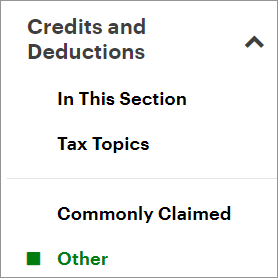I paid spousal support or child support
If you made support payments to financially help out your child and/or former spouse, you might be able to deduct these payments on your return. You can claim a tax deduction for the support payments you’ve made as long as:
- Payments are made under the terms of a court order or written agreement, which is registered with the Canada Revenue Agency (CRA)
- The recipient is your former spouse/common-law partner and you were living separately at the time of the payment because of a breakdown in the relationship; or, you’re the legal parent of a child or the recipient
- You’re paying support for the maintenance of the recipient, child of the recipient, or both, and the recipient can decide how to use the payments
- The allowance is paid on a periodic basis, as set out in the court order or written agreement
- You paid support directly to the recipient (child support can’t be made directly to your child)
Note: Your tax deduction also depends on when your court order and written agreement was made.
Your spousal support payments will always be deductible by you and taxable to the recipient, regardless of when your order or agreement was made, as long as all payments for child support are fully paid for current and prior years.
If you make support payments but you do not have a court order or written agreement in place, or if an agreement doesn’t distinguish your support payments between child support or spousal support, you cannot deduct the payments on your return. According to the CRA these support payments are non-deductible (or tax-neutral as per Revenu Québec).
Your tax deduction for child support payments depends on whether your court order or written agreement was made before May 1997 or after April 1997.
If your court order or agreement was made before May 1997, your child support payments are taxable to the recipient and deductible by you (the payer) unless any of the following conditions apply to you, in which case the support payments are non-deductible or tax-neutral:
- There were changes to the amount of child support payments after April 1997, in which case these payments are no longer taxable or deductible beginning on the date of the change.
Note: Automatic changes in the amount of support, due to an increase in the cost-of-living or changes in income, aren’t included in this rule.
- You have a new court order or written agreement made after April 1997 with the same person (but still have a valid order or agreement made before May 1997), and the new order changes your child support payments. The tax rules in effect after April 1997 will apply to both orders/agreements.
- The court order or written agreement specifically says your payments won’t be taxable or deductible (but this can’t be applied to payments made before May 1, 1997).
- You elected to have the tax rules in effect after April 1997 apply to your court order or written agreement, without having to change it, even though it was made before May 1997.
If your court order or agreement was made after April 1997, you won’t be able to deduct your child support payments, and they won’t need to be included in the recipient’s income (tax-neutral payments).
Note: Your payments might be considered support payments even if they don’t meet the above conditions. This might be the case if your payments were made before the court order or written agreement date, were specific-purpose and third-party payments, or were lump-sum payments.
If you’re a resident of Québec, and you made spousal and/or child support payments, the same rules that govern
As a payer of support payments, you can’t claim legal fees on your federal return that you paid to:
-
get a separation or divorce
-
establish child custody or visitation rights
-
establish, negotiate, or contest the amount of support payments (not applicable to Québec residents)
If, you’re a Québec resident, you can’t claim legal fees you paid to get a separation or divorce or establish child custody or visitation rights. However, you can claim fees you paid to:
-
get a decision on your initial obligation to pay support
-
negotiate and contest the amount of support payments
-
revise your obligation to pay support
Follow these steps in H&R Block’s tax software if you’re a Québec resident and want to claim legal fees related to support payments you made:
-
On the left navigation menu, under the Credits & deductions tab, click Other.

- Under the MISCELLANEOUS heading, select the checkbox All other deductions, then click Continue.
- When you arrive at the All other deductions page, enter your legal fees in this field under the Québec deductions section: Deduction for legal fees (related to support payments, recovering a retiring allowance/pension benefit, or filing an appeal for a notice of assessment)
Follow these steps in H&R Block’s 2025 tax software:
-
On the left navigation menu, under the Credits & deductions tab, click Other.

- Under the OTHER SITUATIONS heading, select the checkbox labelled Spousal or child support – made payments indicating that you made support payments in 2025 then click Continue. If you’re a Québec resident, select the checkbox labelled Made support payments (for a spouse, former spouse, or child), then click Continue.
- When you arrive at the selected page, enter your information into the tax software.

